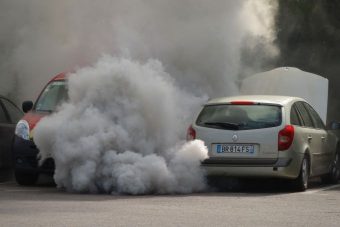
Diesel car sales are set to see their market share eroded over the next two years as public concern over air pollution continues to mount, the latest industry forecasts suggest.
New car sales increased by 2.3 per cent last year compared to 2015, but are conversely expected to show a year-on-year decline of 3.7 per cent by the end of 2017, according to figures released late last week by the Society of Motor Manufacturers and Traders (SMMT).
Diesels are set to make up 43.2 per cent of annual demand this year, which is down from 47.7 per cent in 2016 and 50.8 per cent in 2012.
Moreover, SMMT expects market penetration of new diesel cars to further slump to 42.4 per cent next year, demonstrating a slowdown in demand as fears grow over air pollution from roadside transport.
Last month the government unveiled the first part of its strategy for tackling levels of air pollution which breach EU legal limits in many areas of the country. The plan focused largely on road transport, with proposals to consult over introducing a scrappage scheme to encourage consumers away from high polluting diesel cars.
The strategy also raises the prospect of charging schemes being introduced in some urban areas for diesel drivers, although the government insisted alternative approaches for curbing pollution would have to be tried first.
The government’s own modelling has suggested charging schemes wouold represent the most effectvie way of reducing air pollution levels. Meanwhile, London is expected to introduce a Toxicity charge for the most polluting diesel vehicles this autumn.
Industry insiders have conceded that the wave of policy measures, coupled with the fallout from the ‘dieselgate’ scandal, has hit demand for new diesels.
Meanwhile, although SMMT does not provide forecast data for new electric and low carbon vehicles at present, contemporary market figures for sales of ultra low emission cars over the past few years show that, although still only representing a small fraction of the market, sales are beginning to surge.
SMMT figures for June showed sales of alternatively fuelled vehicles (AFV) reached a record market share of 4.4 per cent despite a drop in overall car sales, while the market share for diesel cars simultaneously fell to 43.7 per cent. Sales of electric and hybrid cars in particular grew 33.1 per cent in May compared to the same month last year.
The figures come alongside research by car dealing website Auto Trader showing fears over the impact of diesel vehicles on air quality may have stymied interest in purchasing these cars online, with 56 per cent of fuel type searches on the website for diesels in June compared to 71 per cent in November 2016.
The results came alongside a “significant spike” in searches for alternatively fuelled cars after the government announced plans to ban new petrol and diesel cars from 2040 last month, according to Karolina Edwards-Smajda, Auto Trader’s retailer and consumer product director.
“Given the level of coverage it’s not surprising there has been a decline in searches, but despite the ongoing negative rhetoric the impact on diesel has been fairly limited up to this point,” she said.
Elsewhere, figures for new bus and coach registrations released today by SMMT show a decline in sales during the second quarter of 2017, leading the trade body’s chief executive Mike Hawes to urge local authorities and bus companies to turn their attention towards low emission buses as they attempt to improve urban air quality.
“Having experienced a sustained period of significant growth, it’s natural to see the market level out to steadier levels,” Hawes said of the bus and coach market. “However, with buses so prevalent in our towns and cities, encouraging the uptake of the latest low emission Euro VI diesels and hybrids, as well as zero emission electric buses, will be vital to improving local air quality.”
Source: businessgreen.com



